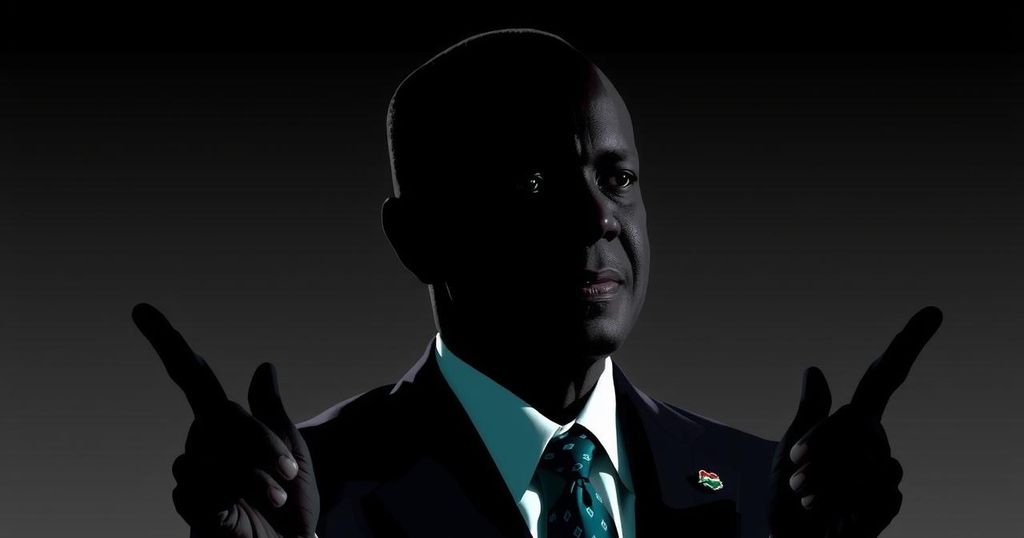Eswatini Opposition Leader Poisoned: A Reflection of Political Repression in the Monarchy

The leader of Eswatini’s opposition party was reportedly poisoned in South Africa amid rising concerns over political repression in the country. Mlungisi Makhanya had announced plans for pro-democracy protests next month, drawing attention to the oppressive political climate under King Mswati III’s regime. The government has denied any involvement in the alleged assassination attempt.
The main opposition party in Eswatini has reported that its leader, Mlungisi Makhanya, has been poisoned in what they allege to be an assassination attempt. This incident escalates concerns regarding political repression in Eswatini, a southern African nation known for being among the few remaining absolute monarchies. Makhanya was reportedly hospitalized in South Africa following the alleged poisoning on Tuesday. While under state protection, there has been no disclosure regarding his health status or the specifics surrounding the incident. Recently, Makhanya had announced intentions for renewed pro-democracy demonstrations in Eswatini next month. The Eswatini government, represented by spokesperson Alpheous Nxumalo, has vehemently denied any connection to the incident. King Mswati III, who has governed Eswatini since 1986, maintains dominion over all sectors of the government. Human rights organizations have consistently condemned his administration, highlighting the lack of political freedoms and the violent repression of dissent. The nation has witnessed significant pro-democracy protests, notably in 2021, described as the gravest challenge to Mswati’s authority, which resulted in the deaths of at least 46 individuals at the hands of security forces, as reported by Human Rights Watch. Adding to the climate of fear, human rights attorney and Pudemo member Thulani Maseko was murdered last year, a tragedy that Makhanya labeled a political assassination, yet the government has denied any involvement in that case as well, and accountability remains absent. The recent alleged poisoning of Makhanya has spurred responses from various South African political factions, including the Economic Freedom Fighters, which expressed concern over the incident, asserting that he was found incapacitated at his residence while preparing to spearhead the upcoming protests against the ruling regime. Notably, political parties have been banned in Eswatini since the 1970s, and while some political activities are allowed today, the king retains the authority to appoint key governmental officials and can legislate unilaterally. Furthermore, the lavish lifestyle of King Mswati III, contrasted with the dire poverty faced by many citizens, raises questions about governance and equity in Eswatini.
Eswatini, formerly known as Swaziland, is an absolute monarchy where King Mswati III wields extensive powers over the judicial, executive, and legislative branches. The nation has a history of political repression, with laws preventing the operation of political parties and widespread human rights abuses reported over the years. In 2021, pro-democracy protests highlighted public dissatisfaction with governance, leading to increased violence and repression, notably resulting in numerous deaths and the assassination of political figures. The recent attempt on Makhanya’s life underscores ongoing tensions and the perilous state of political dissent in Eswatini.
The alleged poisoning of Mlungisi Makhanya illuminates the precarious environment for political opposition in Eswatini, where the ruling monarch has historically suppressed dissent and maintained tight control over governmental functions. This incident, alongside past political violence, exemplifies the urgent need for accountability and reform in a nation currently grappling with human rights violations.
Original Source: www.theguardian.com







